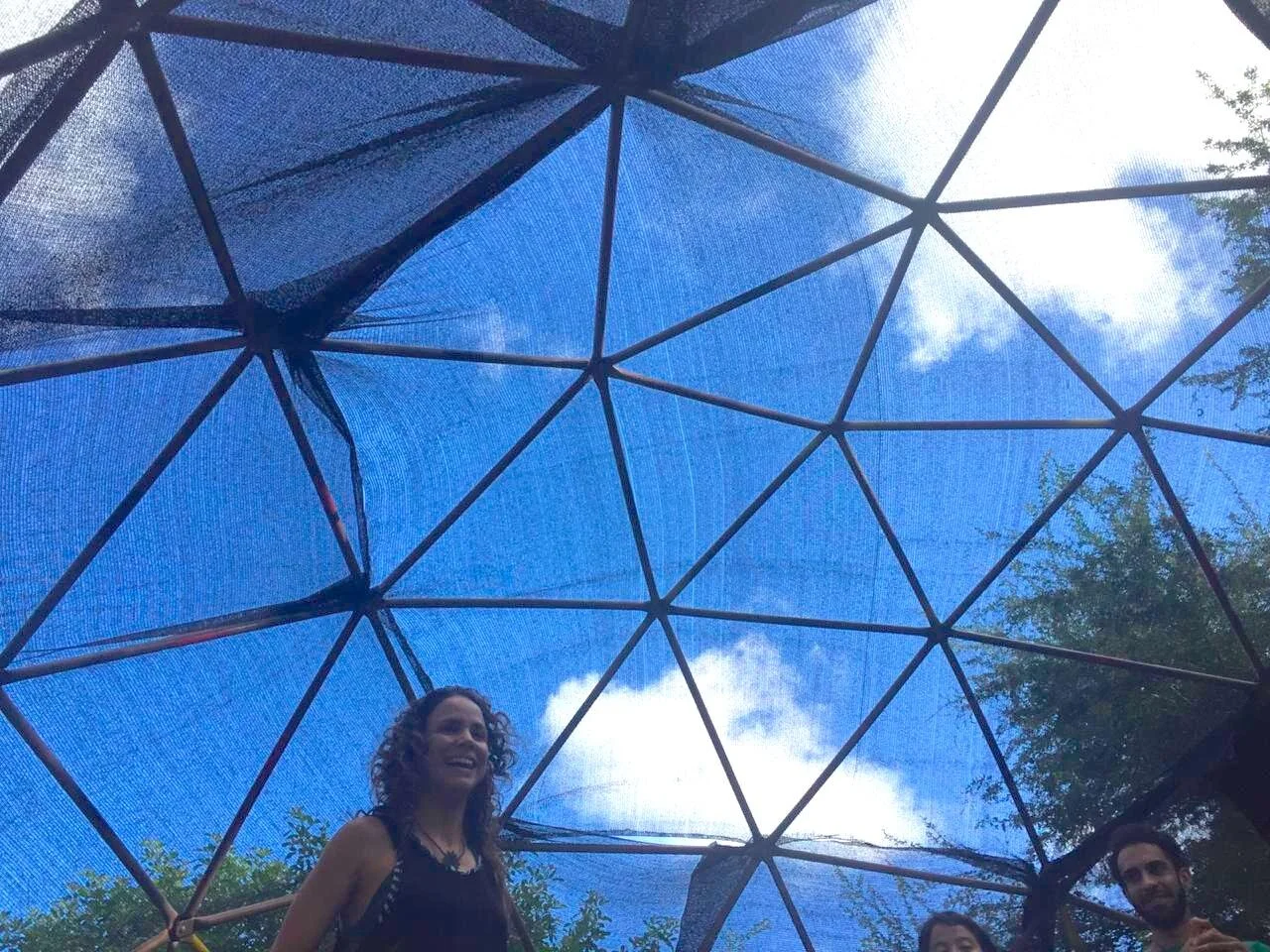The Power of a Network
Growing through urban communities
A word in your ear
RAIN began as a thought on the banks of a dried-up stream in Minas Gerais, and took form over lunch with our bold and bearded friend Márcio.
Márcio phoned Mariana in Recife, Mariana talked to Ravi, and together with a team of students they built a geodesic agroforestry nursery at Professor Cândido Duarte Middle School. A generous benefactor in London loved the idea, and put up the funds.
Out of the playground and into the community
Video footage from the project was shared with the expanding RAIN network, and something remarkable emerged from the playground - a practical and cost-effective way of improving food security in urban communities facing uncertainty. Generous donors gave enough money to fund our friends in Recife to build Rede Pela Transição (Network for Transition), taking seeds, tools and techniques into the community.
As part of her master’s degree, Mariana produced an educational booklet on sustainability and food security for poor urban communities. She set up a centre demonstrating the techniques with a black women’s group from the community of Passarinho. It works. People who were hungry have grown their own food, and medicine as well. They, in turn, are sharing their knowledge and seeds with their friends.
The booklet is called ‘Somos Todas Passarinhas’ after the community. It means, “We are all little birds”. Birds disperse seeds throughout the landscape and across geographical divisions as they fly, so the name is apt.
Follow the journey in this two-minute video:
Ripple effect
Others in Rede Pela Transição took the work online during lockdown; now their educational videos are being watched in eight states across Brazil. The pandemic and the precarious social situation in Brazil have left many communities struggling to find enough to eat, so the next step is to take the project to eight more urban communities in Recife.
The network is ready to expand, bringing expertise and techniques to establish many more agroecological systems. They have two goals:
Take the booklet into eight other communities, and set up more agroecology hubs to demonstrate the techniques.
Create a second booklet directed at schools and linked to the curriculum
Their crowdfunding campaign can be found here - for an English translation click the image.
They need to raise around £3000, and the Brazilian Crowdfunder ends on 12th March. This sum could change the lives of thousands of people currently living in hunger. If we act now, we can take this pioneering initiative into other communities.
Their donation page only takes donations in Brazilian currency. If you can donate, please use this link to donate through RAIN and leave a comment with the word ‘Rede’. 100% of donations made in this way will go to Rede Pela Transição whether their fundraising target is met or not.
Why stop there?
With two informative booklets, strong community ties and enough international support, the network could expand from eight states to the rest of Brazil. Ellen in Canada is donating time to convert the booklet into an app. It is also being translated into English by Ryan - we’re not sure where Ryan is from, he only just got in touch. If you have a few hours to volunteer, join us!
Thousands of poor urban communities in Brazil struggle with hunger and poor access to healthcare. Mutual aid does not require huge budgets, complicated administration systems or even governments to have powerful impacts where they are needed.
Sometimes it only takes an idea, a conversation, and a network of people who care.
Donate now to support this initiative.
RAIN supports many other grassroots projects in Brazil, from reforestation with indigenous nations to regenerating endangered Trees of Music with support from the classical music community.
Please share this email, and sign up for our newsletter here.
Mariana, Ravi and a bit of Lila in the sapling nursery






